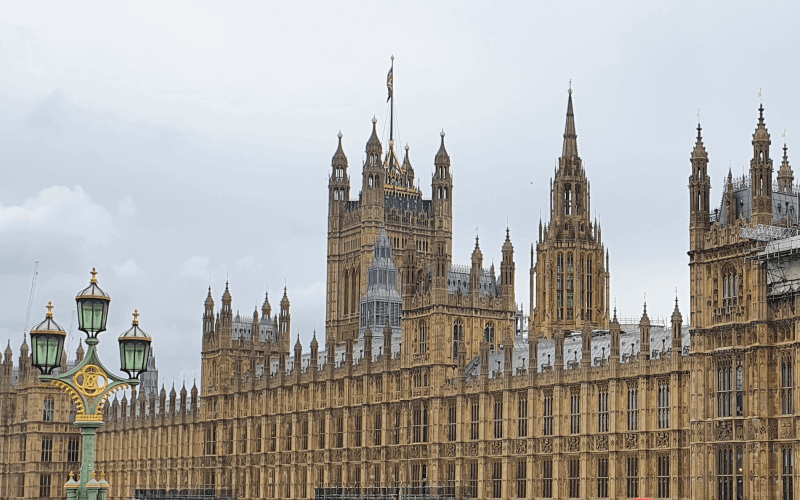A cross-party committee of MPs has rejected attempts by a minority of its members to try to use a new report to push the government towards legalising assisted suicide in England and Wales.
The report follows a 14-month inquiry, with more than 68,000 responses from members of the public to an online survey, more than 380 pieces of written evidence, and oral evidence from 29 experts and politicians to the health and social care select committee.
An appendix to the Assisted Dying/Assisted Suicide report shows how the committee rejected an attempt by two of its 11 members to call on the government to put aside time for a “full debate” on the issue.
It also rejected an attempt by the same two members to insert a conclusion in the report that the experience of states and countries that have legalised assisted suicide showed assisted suicide “can be introduced safely and successfully”.
As a result of these votes, instead of reaching a conclusion on whether the law should be changed, the committee described the report today (Thursday) as “a comprehensive basis for future debate” on assisted suicide.
In all, committee members apparently opposed to legalisation rejected three attempts to add more pro-assisted suicide content and conclusions to the report, and they also succeeded in watering down criticisms of the current law through their own amendment.
There were both Conservative and Labour MPs on both sides of the votes.
Today’s publication could be welcomed by disabled activists who oppose legalisation of assisted suicide and have raised serious concerns about the impact of legalisation in those states and countries where it has taken place.
They have warned that more than a decade of cuts to social care has stripped disabled people of their independence and would leave them at “significant risk” if parliament opted to legalise assisted suicide.
The new report includes evidence on parliament and the current law, the government’s role in the debate, international examples of where assisted suicide has been legalised, assessing eligibility and capacity to give informed consent to assisted suicide, and issues around palliative and end-of-life care.
On the key issue of capacity and safeguarding, the committee said it was clear from hearing from healthcare professionals and their representatives that there was “hesitation around whether it is possible to accurately assess capacity, and safeguard the person, in every case”.
It added that some people had argued that there was a “similar risk” with current laws on assessing capacity and safeguarding people who opt to cease treatment, or accept end-of-life care, including palliative sedation.
The report also calls for an improvement in the support and care of people managing a terminal diagnosis, and for the government to commission research into how to improve mental health support for this group of people.
Legalisation is currently being considered on both Jersey and the Isle of Man, and the committee concludes that the government should be “actively involved in discussions” on what to do if they introduce a change in the law.
It also calls for improvements to palliative and end-of-life care, even though the UK has “long been a world leader”, as it says provision is “patchy”.
But there is a question-mark over the results of the committee’s online survey, as the report fails to say what proportion of those who expressed a preference said they agreed or disagreed with the current laws on assisted suicide.
Asked if the votes taken on amendments to the report suggested that, having heard months of evidence, the committee was opposed to a change in the law on assisted suicide, a committee spokesperson said: “The report before you, Assisted Dying/Assisted Suicide, has been agreed by the health and social care committee.”
And asked why the report does not include the number and percentage of those who responded to the online form who said they broadly agreed or disagreed with the current law, the spokesperson said: “The form was a means of engaging the public with the committee in a less formal way than through written evidence.
“The respondents to the survey are self-selecting and not reflective of the population overall, therefore we will not be publishing the percentage of respondents who agreed or disagreed with the current law.”
The committee’s chair, the Conservative MP Steve Brine, who did not vote on the amendments, said: “The inquiry on assisted dying and assisted suicide raised the most complex issues that we as a committee have faced, with strong feelings and opinions in the evidence we heard.
“We intend the information and testimony we present in our report today to have a lasting legacy and, as we set out in the initial terms of reference, be a significant and useful resource for future debates on the issue.”
A note from the editor:
Please consider making a voluntary financial contribution to support the work of DNS and allow it to continue producing independent, carefully-researched news stories that focus on the lives and rights of disabled people and their user-led organisations.
Please do not contribute if you cannot afford to do so, and please note that DNS is not a charity. It is run and owned by disabled journalist John Pring and has been from its launch in April 2009.
Thank you for anything you can do to support the work of DNS…

 Disabled peers plan to ‘amend, amend, amend, amend, amend’ after assisted dying bill reaches Lords
Disabled peers plan to ‘amend, amend, amend, amend, amend’ after assisted dying bill reaches Lords This bill opens the door to scandal, abuse and injustice, disabled activists say after assisted dying bill vote
This bill opens the door to scandal, abuse and injustice, disabled activists say after assisted dying bill vote Absence of disabled people’s voices from assisted dying bill has been ‘astonishing’, says disabled MP
Absence of disabled people’s voices from assisted dying bill has been ‘astonishing’, says disabled MP